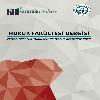ÖZGÜRLÜK VE GÜVENLİK İKİLEMİNDE ALMAN CEZA MUHAKEMESİ HUKUKUNDA DELİL DEĞERLENDİRME YASAKLARI ÖĞRETİSİ
Delillerin kullanılması yasağı, Ceza yargılamasına Dahil Olmayan Şüpheli ve Sanıklar, Menfaat Tetkiki, Özel Hayatın Dokunulmaz Çekirdek Alanı
DOCTRINE OF THE EXCLUSION OF EVIDENCE IN THE CRIMINAL JUSTICE OF GERMANY - A CONFLICT BETWEEN LIBERTY AND SECURITY
Exclusion of Evidence Appreciation of Values, Core Area of Private Conduct of Life, Absolute Exclusion of Evidence, Fair Trial,
___
- -----
- ISSN: 2687-3923
- Yayın Aralığı: 2
- Başlangıç: 2019
- Yayıncı: Türk-Alman Üniversitesi
ALMAN KAMU HUKUKUNDA ÖLÇÜLÜLÜK İLKESİ
Philip KUNİG, Çevirmen: Burak ÇELİK, Çevirmen: Gökcen DOGAN, Çevirmen: Ahmet Çağrı YILDIZ
KANADA VE ALMAN ANAYASA HUKUKUNDA ÖLÇÜLÜLÜK
Dieter GRİMM, Çevirmen: Kemal BAŞOL, Çevirmen: Eyüp Kaan DEMİRKIRAN
HUKUK VE YAPAY ZEKÂ: E-KİŞİ, MALİ SORUMLULUK VE BİR HUKUK UYGULAMASI
ANONİM ORTAKLIKLAR HUKUKUNDA İŞ İNSANI KARARI
ANAYASA HUKUKUNDA ÖLÇÜLÜLÜK: NEDEN BURASI HARİÇ HER YER?
Bernhard SCHLİNK, Çevirmen: Lütfullah Yasin AKBULUT, Çevirmen: Eyüp Kaan DEMİRKIRAN
TÜRKİYE’NİN DEMOKRATİKLEŞME SÜRECİNDE BİR DÖNÜM NOKTASI OLARAK 1946 SEÇİMLERİ
